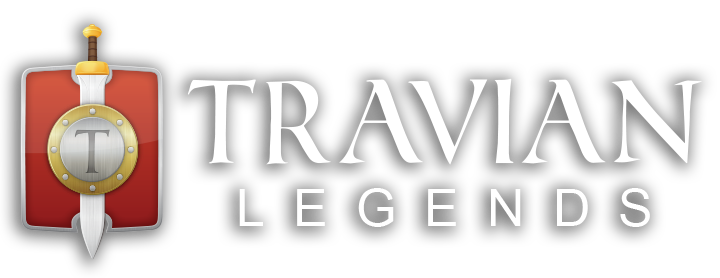In Travian: Kingdoms and Travian: Legends you can choose whether to fight alongside the Romans, Gauls or Teutons. Each tribe has their own strengths and weaknesses, resulting in advantages and disadvantages on the battlefield. While the Teutons are represented as a homogeneous group in the game, in reality they never were a closed civilization or a people according to our modern understanding of these terms. The Teutons were actually made up of a group of tribes in the regions of north, east and mid-Europe. But where does our picture of THE Teutons come from? Our blog post will give you some insight.
The consequences of the Celtic attack
It’s not fully clear where the word “Teutons” came from. However it is likely that this name was initially an ascription and only later was used as a self-ascription by a larger group. The term was sometimes used by Greek and Roman scholars from the fourth century BC, but never featured too prominently. The image of what occurred in the wild north of Europe was hazy and fueled by legends and myths for most civilized Greeks and Romans. The Celtic attack in the fourth century BC, in which Rome was conquered and forced to pay tributes, traumatized the Romans. Even centuries later they were skeptical and fearful of their northern neighbors. The tribe of the Cimbri particularly threatened Roman supremacy until the politician and general Marius beat them and their allies eventually in battles in 102 and 101 BC. The fear remained though and sometimes it was utilized specifically for political ends.
Poseidonios and Tacitus
In the first century BC, the Greek philosopher Poseidonios mentions the Teutons in a book, which is only preserved in fragments. He describes them as meat eaters and milk drinkers, who drink their wine undiluted, i.e. people of a low cultural standing. This and other written sources, in which the term Teutons appears, most likely focus on a particular group of people in the northern German/Dutch lowlands. In his Commentarii, Julius Caesar described a tribe in that region as Germani cishrenani, who seemingly called themselves “Germani” (Teutons). According to Tacitus Gaul tribes picked up that name and gave it to the people east of the Rhine river, who then slowly started to use it themselves as well. Tacitus’ work Germania, which was published towards the end of the first century AD, drew an idealized picture of the Teutons. It only became significant upon its retrieval in the era of humanism, particularly as the basis of the arising sense of national identity.
The Rhine as a cultural border
In ancient times, Caesar coined the general term “Teutons” more than a century before Tacitus, by using it in the aftermath of his campaign. In his Commentarii Caesar described the Gauls living west of the Rhine and called their counterpart on the eastern side by the over-arching term Teutons. The general depicted the Rhine as a cultural border and called his submission of a few tribes the “Conquest of Gaul”. Caesar divided northern Europe in three zones that were inhabited by the Gauls, Teutons and Scythians. His use of the word Teuton was meant in geographical terms, but was understood to refer to ethnological facts. It has become a fixed part of the European culture of writing and for a long time anything Teutonic was seen as wild and untameable. It is true that most attempts by Rome to expand its area of influence on the eastern side of the Rhine river were unsuccessful, until eventually the empire fell.
Ascription or self-ascription?
Contemporary historians believe that the Rhine was indeed not the border between two completely different cultures. The separation made by the Romans was simplistic and with both a political and propagandistic background in mind. There are only very few sources about the people that lived in the area described by the Romans as Germania. But it can be assumed that the term “Teuton” was most likely an ascription long before it became a self-ascription, too.
Aside from that: Head straight to the game here!.


When some one searches for his required thing, therefore he/she wants to be available that in detail, therefore that thing is maintained over here.|
Howdy would you mind letting me know which web host you’re utilizing? I’ve loaded your blog in 3 completely different internet browsers and I must say this blog loads a lot quicker then most. Can you suggest a good web hosting provider at a reasonable price? Thanks, I appreciate it!|
marinir seo
Hi Anny Zenker, I enjoy, result in I found exactly what I used to be looking for. You’ve ended my 4 day long hunt! God Bless you man. Have a nice day. Bye
Thanks for this information, very interesting explanation and detail, made me more curious, i want to try it.
Thanks again Anny, greeting.